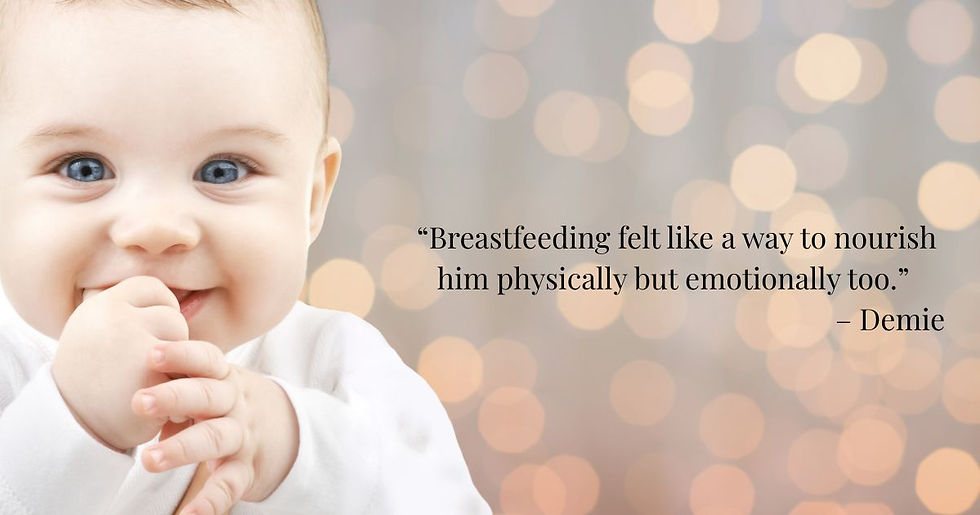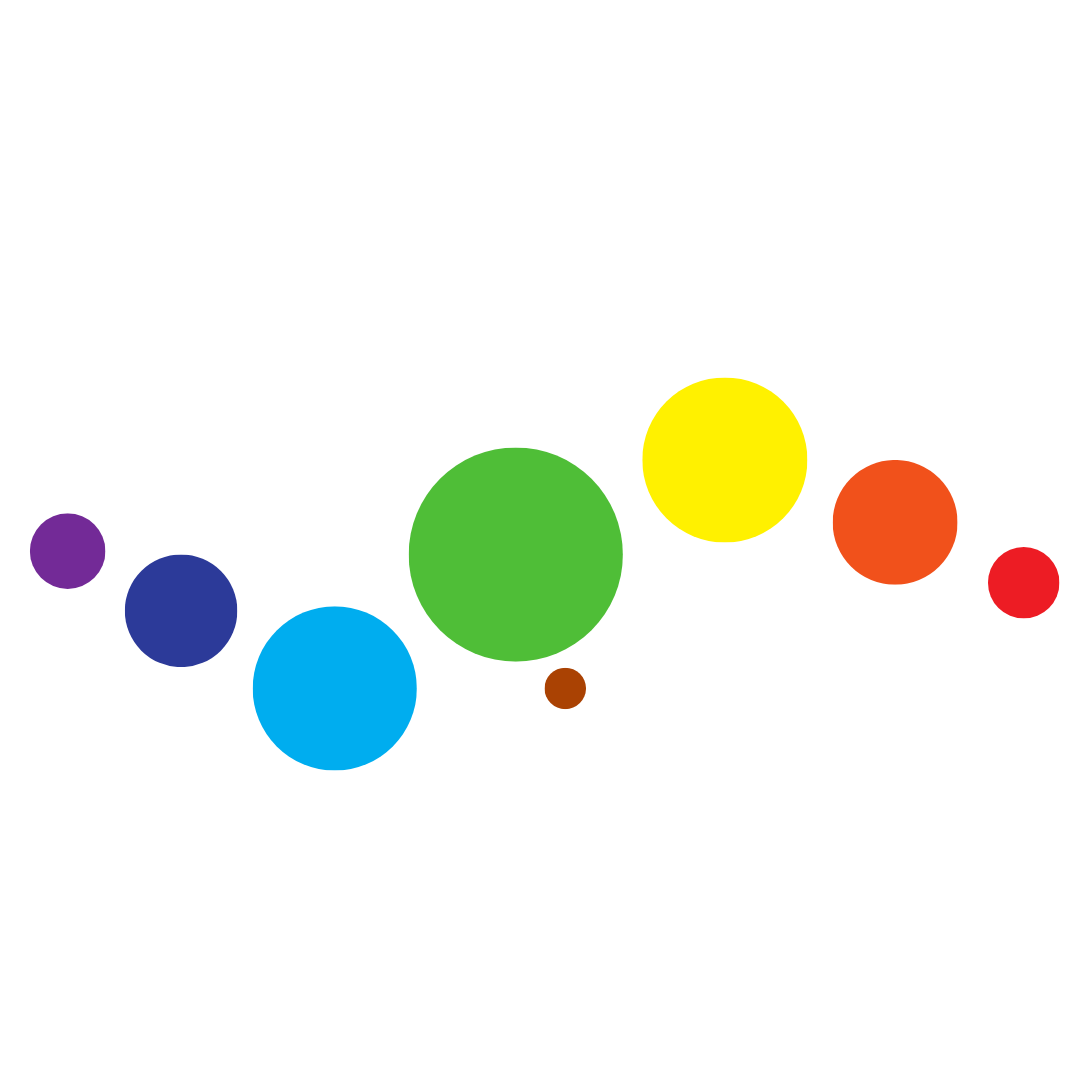To Breastfeed or Not to Breastfeed: Exploring the Benefits of Breastfeeding for Moms and Babies – A Millennial Mom's Real Story
- Patricia Maris

- Aug 7, 2025
- 7 min read
Why This Works

I. Introduction
Breastfeeding is more than just a choice—it's a biological marvel with the power to shape lives, families, and even societies. Did you know that breast milk is a living substance, uniquely tailored to meet your baby's needs, and packed with immune-boosting, brain-building, and life-sustaining properties? For mothers, it's not just about nourishing their child—it's a shield against chronic diseases like breast cancer, type 2 diabetes, and cardiovascular disease. The ripple effects extend far beyond the home: breastfeeding reduces healthcare costs, improves public health, and even supports global economic growth.
Yet, despite its profound benefits, breastfeeding remains a deeply personal and sometimes polarising decision, influenced by modern challenges, societal pressures, and individual circumstances. As we celebrate World Breastfeeding Week (August 1–7), let's dive into the science, the stories, and the support systems that make breastfeeding one of the most impactful acts of motherhood—and explore how it continues to evolve as a cornerstone of health, connection, and love.

II. Breastfeeding Benefits: A Superpower Backed by Science
Breast milk isn't just food—it's living nutrition. Under a microscope, it's a fascinating mix of active cells, immune defenders, and nutrients explicitly tailored to your baby's needs. It's like nature's version of a personalised meal plan, designed to grow and protect your little one.
The benefits? They're as dynamic as they are profound:
For babies: A stronger immune system, fewer infections, and reduced risks of asthma and diabetes later in life.
For moms: Lower dangers of breast and ovarian cancer, reduced osteoporosis, and even a boost in emotional wellbeing.
But beyond the science, breastfeeding is about more than just nutrition. It's about the emotional connection it fosters. It's the quiet moments, the tiny hands reaching for you, and the unspoken bond that forms during those feeds. These are the gifts of breastfeeding that no data chart can capture, but every mother and caregiver can feel.

III. The 8 Pillars of Wellness: Preparing for Parenthood
Breastfeeding may be natural, but it's not always easy. It requires preparation, intention, and teamwork. That's where the 8 Pillars of Wellness come in—a whole-istic approach to creating balance and harmony in your life as you embark on the parenting journey.
Willpower: Breastfeeding takes determination. It's not always smooth sailing, but setting shared parenting goals with your partner can help you stay focused and motivated.
Breathing: Calm minds lead to calm babies. Mindfulness and breathing exercises can help you manage stress and remain present during feeds.
Hydration: Making milk is thirsty work! Keep water nearby during feeds, and partners, step in to keep those glasses full.
Thoughts: Your mindset matters. Replace uncertainty with encouragement, and tackle challenges as a team.
Nutrition: Breastfeeding places unique demands on your body. Eating well fuels both you and your baby. Partners can pitch in by prepping healthy snacks and meals.
Rest: Sleep fuels milk production and stabilises moods. Share responsibilities and nap when you can.
Sexual Wellbeing: Intimacy may take a backseat, but open communication and grace can help you navigate this new chapter together.
Community: Breastfeeding can feel isolating, but you're not alone. Seek out support groups, lactation consultants, or even online forums to stay connected.

IV. Modern Tools Meet Age-Old Wisdom
The breastfeeding journey has come a long way. From apps that track nursing sessions to lactation-safe recipes and online communities, today's moms have access to resources that make the process more manageable.
As Gail, a nurse and mom, shares:
"MarisGraph has truly been a game-changer for me. It gave me a much deeper insight into my wellness by shedding light on areas I had often overlooked, like stress levels, sleep quality, and nutrition."
Whether you're a mom in a bustling city or a rural town, these tools, combined with the wisdom of generations before us, create a robust foundation for modern motherhood.

V. Breastfeeding: A Partnership, Not a Solo Act
Breastfeeding is often seen as a mother's journey, but in reality, it's a team effort, and the role of a supportive partner is invaluable. Research consistently shows that partner support has a significant influence on a mother's breastfeeding experience, from initiation to duration. Positive and active involvement—such as offering emotional encouragement, participating in decision-making, and providing practical assistance like sterilising pumping gear or helping with late-night burps—has been shown to boost a mother's confidence and extend the breastfeeding timeline (Chen et al., 2019). Partners, you are not just a bystander in this journey, you are a crucial part of it.
For employed mothers, the challenges of continuing to breastfeed after returning to work add another layer of complexity to their breastfeeding journey. Barriers such as insufficient break time, inadequate lactation facilities, and a lack of support from employers and colleagues often create a conflict between work and family roles. This conflict—whether time-based, strain-based, or behaviour-based—can interfere with a mother's ability to balance breastfeeding with her professional responsibilities. Even in workplaces that provide lactation rooms and milk expression breaks, many mothers struggle to continue breastfeeding. For instance, a study conducted in a Taiwanese semiconductor manufacturing plant revealed that while 66.9% of mothers breastfed during maternity leave, only 10.6% continued after returning to work (Chen et al., 2019). It's important to acknowledge these challenges and provide support and understanding to mothers in similar situations.
The partner's role becomes even more critical in these scenarios. Studies show that when mothers perceive their partner's attitude toward breastfeeding as positive and supportive, they are more likely to continue breastfeeding, even in the face of workplace challenges. Key attributes of adequate partner support include knowledge about breastfeeding, a positive attitude, involvement in decision-making, practical assistance, and emotional encouragement. These elements not only empower mothers but also create a shared sense of purpose in navigating the breastfeeding journey together.
For health care professionals, this insight is invaluable. Encouraging partners to actively participate in breastfeeding education and support can significantly enhance a mother's ability to sustain breastfeeding, particularly when returning to work after childbirth. By fostering a culture of shared responsibility and understanding, we can help mothers overcome barriers and achieve their breastfeeding goals, ensuring both mom and baby reap the lifelong benefits of this incredible bond.


VI. A Millennial Mom's Take: Demie's Breastfeeding Journey
While research highlights the incredible benefits of breastfeeding—like boosting a baby's immunity and fostering emotional bonds—nothing beats hearing from a real mom. We sat down with Demie, a millennial parent, to get her honest insights. Her story adds a personal touch to the science, showing how breastfeeding fits into modern motherhood.
1. What inspired your decision to choose breastfeeding over bottle-feeding, and how has it aligned with your personal goals as a mom?
My decision to breastfeed was inspired by a mix of instinct, research, and the desire to give my baby the most natural start possible. I'd read about the many health benefits—how breast milk supports immune development, brain growth, and even reduces the risk of certain illnesses—and it really resonated with my hopes for how I wanted to show up as a mom. But beyond the science, there was a deep, intuitive pull. I wanted to feel close to my baby, especially in those early, fragile months. Breastfeeding felt like a way to not only nourish him physically, but emotionally, too. It aligned with my personal goals of being present, grounded, and nurturing in a profoundly personal way. That said, I never saw breastfeeding as an all-or-nothing situation. It was important to me to stay open to what worked best for both of us. I viewed breastfeeding as a starting point, not a rigid ideal.
2. How has your support network—family, friends, or health care professionals—played a role in your breastfeeding journey?
My support network has been absolutely essential. In those early days—when my nipples were sore, my sleep was fractured, and I doubted myself almost daily—having people around me who encouraged me without pressure made all the difference. My partner was incredibly hands-on: helping with diaper changes in the night, making sure I had water, snacks, or a blanket when I was stuck under a sleeping baby. That kind of quiet, consistent support helped me keep going when I might have otherwise quit. My mom was also supportive, reminding me that it's okay to take it one day at a time. And a couple of close friends who had breastfed their babies offered both practical advice (like how to get a better latch or treat sore nipples) and emotional reassurance. When I cried out of frustration, they reminded me that it's normal. I also worked with a lactation consultant early on. Honestly, that was a game-changer. She helped me fix positioning issues and gave me permission to stop blaming myself when things didn't go smoothly.
3. Were there any cultural influences or traditions that shaped your choice to breastfeed?
Yes. Culturally, breastfeeding was not only common in my family but also celebrated. I grew up watching the women around me nurse their babies—it wasn't hidden or shamed. That kind of exposure made breastfeeding feel familiar and expected, not foreign or intimidating. There's also a deep-rooted belief in my culture that mother's milk carries emotional warmth and ancestral wisdom—that breastfeeding isn't just about nutrients, but about bonding and comfort. That stayed with me, and it influenced my decision on a more emotional level. Even though modern parenting comes with a million choices, I found a kind of grounding in this tradition. It felt like a connection to the women before me and a gentle reminder that my body was capable and made for this.
4. What have been the most rewarding aspects of breastfeeding for you and your baby?
Without a doubt, the most rewarding part has been the closeness it's created between me and my baby. There's something profoundly beautiful about holding him close, seeing his little hand rest on my chest, and knowing I'm his comfort and his safety net all in one. Breastfeeding has also given me quiet moments of stillness in the chaos of early motherhood—moments where everything else fades and it's just the two of us. That kind of presence has been incredibly healing for me, especially on the harder days. And then there's the satisfaction of watching him grow and knowing that my body played such a direct role in that. It's empowering. It's also taught me to trust myself more—to listen to my instincts and to honour the rhythm my baby and I have created together.
Demie's experience reminds us that breastfeeding is as much about connection as it is about nutrition. If her story resonates, share your own in the comments below!
VII. The Takeaway
Breastfeeding is a beautiful, natural, and deeply impactful experience. Whether you breastfeed for 6 weeks, 6 months, or 6 years, every drop of breast milk is a gift that nourishes not just your baby's body but also their soul.
So, should you breastfeed or not? For those who choose it, the rewards are vast. As we celebrate World Breastfeeding Week, let's honour the mothers who nourish their children, one feed at a time.
Tags:
#WorldBreastfeedingWeek #BreastfeedingJourney #8PillarsOfWellness #ModernMotherhood #BreastfeedingSupport #ParentingWithPurpose #MarisGraph
Reference
Chen, Y.-C., Wu, Y.-C., & Chie, W.-C. (2019). Influence of partner support on an employed mother's intention to breastfeed after returning to work. Journal of Human Lactation, 35(3), 494–503. https://doi.org/10.1177/0890334419830998

$50
Product Title
Product Details goes here with the simple product description and more information can be seen by clicking the see more button. Product Details goes here with the simple product description and more information can be seen by clicking the see more button

$50
Product Title
Product Details goes here with the simple product description and more information can be seen by clicking the see more button. Product Details goes here with the simple product description and more information can be seen by clicking the see more button.

$50
Product Title
Product Details goes here with the simple product description and more information can be seen by clicking the see more button. Product Details goes here with the simple product description and more information can be seen by clicking the see more button.


Comments